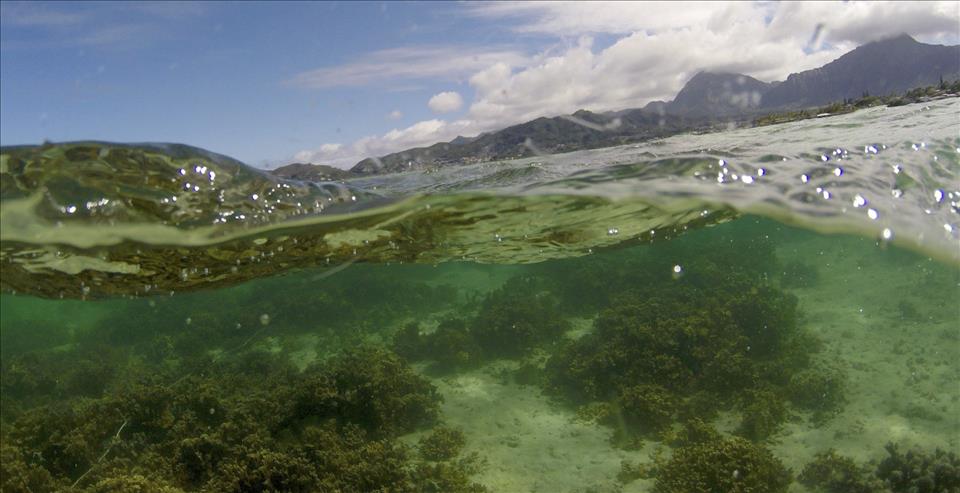
Earth's Oldest, Tiniest Creatures Are Poised To Be Climate Change Winners And The Repercussions Could Be Huge
These organisms play an important role in keeping the oceans in balance. But new research by myself and colleagues shows this balance is at risk.
We found prokaryotes are remarkably resilient to climate change – and as a result, could increasingly dominate marine environments.
This could reduce the availability of fish humans rely on for food, and hamper the ocean's ability to absorb carbon emissions.
Greater dominance of prokaryotes could reduce the availability of fish humans rely on for food. Shutterstock A fine balance
Prokaryotes include both bacteria and“archaea”, another type of single-celled organism.
These organisms are thought to be the oldest cell-based lifeforms on Earth. They thrive across the entire planet – on land and in water, from the tropics to the poles.
What prokaryotes lack in size they make up in sheer abundance. Globally, about two tonnes of marine prokaryotes exist for every human on the planet.
They play a crucial role in the world's food chains, helping support the nutrient needs of fish humans catch and eat.
Marine prokaryotes grow extremely fast – a process that emits a lot of carbon. In fact, prokaryotes to an ocean depth of 200 metres produce about 20 billion tonnes of carbon a year : double that of humans.
This massive carbon output is balanced by phytoplankton – another type of microscopic organism which turns sunlight and carbon dioxide into energy, through photosynthesis.
Phytoplankton and other ocean processes also absorb up to one-third of the carbon humans release into the atmosphere each year. This helps limit the pace of global warming.
How prokaryotes respond to warming is key to understanding how the fine balance of the world's oceans may change in a warmer world. This was the focus of our research .
Prokaryotes are thought to be the oldest cell-based lifeforms on Earth. Pictured: a 3D illustration of marine bacteria. Shutterstock What we found
We wanted to predict how climate change would affect the“biomass”, or total global weight, of marine prokaryotes. We also wanted to examine how it would affect their carbon output.
To do this, we built computer models that integrated decades of observations from dozens of scientific surveys across the world's oceans.
So what did we find? Prokaryotes are likely to be climate change winners, relative to other marine life.
For each degree of ocean warming, their biomass will decline by about 1.5%. This is less than half the projected 3–5% decline we predicted for larger plankton, fish and mammals.
It means future marine ecosystems will have lower overall biomass, and will increasingly be dominated by prokaryotes. This could divert a greater share of available nutrients and energy toward prokaryotes and away from fish, reducing the supply of fish humans eat.
We discovered another important change. For every degree of warming, we predict prokaryotes in the top 200 metres of the world's oceans would produce an additional 800 million tonnes of carbon per year.
This is equivalent to the present-day emissions of the entire European Union (after converting CO2 to carbon).
The biomass of prokaryotes will decline less than plankton. Shutterstock What does all this mean?
Due to human-caused climate change, Earth's oceans are expected to warm by between 1°C and 3°C by the end of this century , unless humanity changes course.
If the amount of carbon produced by prokaryotes does increase as predicted, it could reduce the potential of oceans to absorb human emissions. This means achieving global net-zero emissions will become even more difficult.
What's more, present projections of declines in global fish stocks under climate change generally do not consider how warming may restructure marine food webs by favouring prokaryotes. This means the predicted declines are likely to be underestimated.
Declines in fish populations present a major problem for global food supply, because the oceans are a major source of protein for about 3 billion people .
What should happen nowOur analysis is an important step in uncovering the changing role of marine prokaryotes. But significant uncertainties remain.
Our analysis is built with existing observations. Climate change is already changing conditions in marine ecosystems in ways our models may not have captured.
We also don't know how quickly prokaryotes will adapt and evolve to new environments. But existing research shows that in a matter of weeks, bacteria can develop new traits that make it easier for them to survive.
Clearly, scientists must continue to improve their understanding of prokaryotes, and how they may be affected by climate change.

Legal Disclaimer:
MENAFN provides the
information “as is” without warranty of any kind. We do not accept
any responsibility or liability for the accuracy, content, images,
videos, licenses, completeness, legality, or reliability of the information
contained in this article. If you have any complaints or copyright
issues related to this article, kindly contact the provider above.


















Comments
No comment